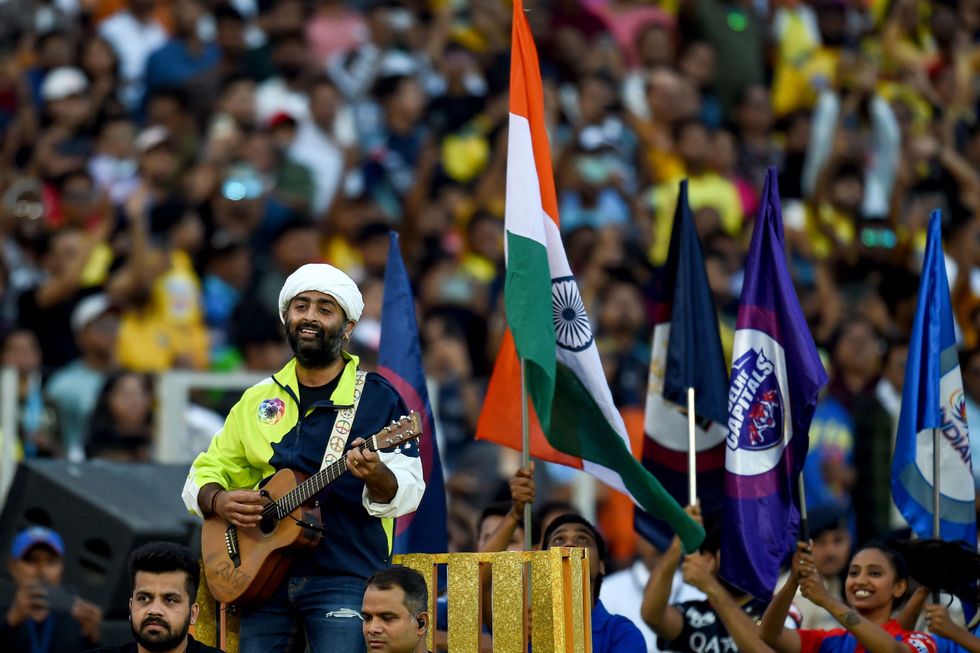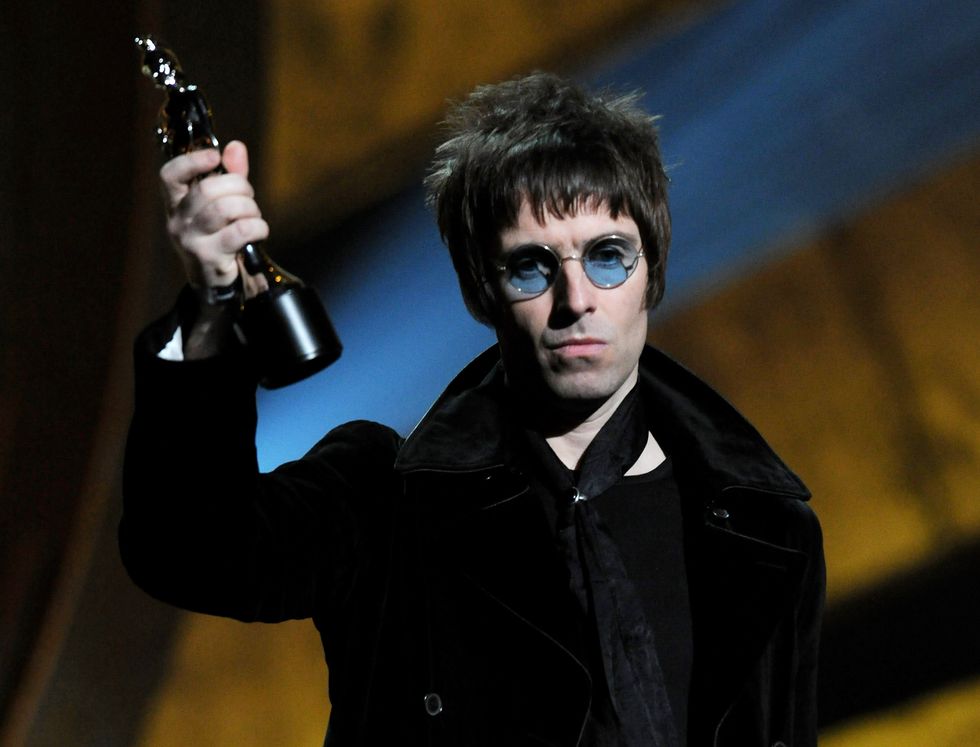FAITH leaders, MPs and medical professionals have told Eastern Eye of the dilemma they are facing over the proposal to legalise assisted dying in England and Wales as the issue was set to be debated in parliament this week.
Introduced by Labour MP Kim Leadbeater, the bill is set to have its crucial second reading – its first key test – on Friday (29).
The Commons will get a free vote as it is a private member’s bill that has been put forward by an MP rather than the government, allowing parliamentarians to vote with their conscience.
If approved, the legislation will advance to further votes in both chambers of parliament.
Labour MP Preet Gill told Eastern Eye she will vote against the bill based on both her personal beliefs as well as concerns about the potential consequences of such a law.
“As a practising Sikh, my faith is rooted in the principle of the sanctity of life,” said Gill, who represents Birmingham Edgbaston. “While I fully recognise and sympathise with the unimaginable pain and hardship that some people can endure with terminal illnesses, I believe that assisted dying conflicts with my core belief that every moment of life has inherent value.
“Beyond my faith, it’s also important to think of the significant impact this bill could have on medical professionals. Assisting in ending life could place an enormous ethical and emotional burden on them.
“For these reasons and taking into consideration the strong views of my constituents, I will be voting against the bill.”
Prime minister Sir Keir Starmer has declined to say which way he will vote, arguing that he does not want to put pressure on other MPs.
The cabinet is split over the issue, with more members believed to be in favour than against.
Culture secretary Lisa Nandy, work and pensions secretary Liz Kendall, Northern Ireland secretary Hilary Benn, transport secretary Louise Haigh and energy secretary Ed Miliband have all said they will back the law.
Others, including home secretary Yvette Cooper, have been less explicit, but indicated their support for the measures in the bill.
However, justice secretary Shabana Mahmood, health secretary Wes Streeting, education secretary Bridget Phillipson and business secretary Jonathan Reynolds have said they will reject the legislation.
A number of MPs made public comments despite the country’s most senior civil servant reminding the cabinet last month that they “should not take part in the public debate”, given the government is remaining neutral on the bill.
On Monday (25), a row erupted over Mahmood’s comments after she said, “As a Muslim, I have an unshakeable belief in the sanctity and the value of human life”, and assisted dying would lead to a “slippery slope towards death on demand”.
Lord Falconer, a Labour peer and an ally of the prime minister, said Mahmood was “motivated by religious and spiritual reasons” and that they “shouldn’t be imposed on everybody else”.
Abtisam MohamedRachael Maskell MP, who opposes assisted dying, called on Falconer to apologise for his “offensive and discriminatory” remarks.
Afzal Khan, a devout Muslim, explained to Eastern Eye the dilemma some politicians may face over how to vote and their religious beliefs.
“From a faith perspective, we have this idea that we shouldn’t do it as it’s almost like nashukra (unthankful). Allah has blessed you with a life, you should do the best you can, and where there is a good thing or bad thing, that is part of the test,” Khan said.
“However, I accept my faith does not allow me to do this, but what right do I have to tell someone else what they should or shouldn’t do, because not everybody has a faith, not everybody’s a Muslim, and Islam tells us there is no compulsion in faith (forcing Islam onto others).”
“I’m thinking about our duty as a society to try to make it as comfortable as possible for people who are suffering,” he added.
“It’s important that our community understands the complexity as it’s not black and white.”
Two polls conducted ahead of Friday’s parliamentary vote showed that a majority of Britons support changing the assisted dying laws.
A YouGov poll released last Friday (22) showed firm majorities across all demographic groups backing legalising assisted dying.
Another More in Common thinktank survey of 15,000 people, reported by the Sunday Times, found nearly two-thirds in favour and only 13 per cent opposed.
Abtisam Mohamed told Eastern Eye she spent time deliberating the issue by consulting her constituents and attending workshops to hear from both sides.
She ultimately decided she would vote against the bill.
“While I recognise any initial change in the law would apply to terminally ill people, I worry that our families and society would be forever changed by it,” she said.
“I am concerned that some of the most vulnerable people in society – low-income or disabled people – would feel like a burden to others, and it would encourage them to give up, a consideration I could never accept for my own family members who would fall in the venerable category.
“I must vote with my conscience and I hope that my constituents will respect my decision. I hope the debate will be conducted with respect and that it will focus on delivering best outcomes for patients.”
The issue – which was last voted on in 2015, when MPs overwhelmingly rejected changing the law – has also sparked concern from religious groups and other opponents about its implications.
Preet GillSome religious leaders joined forces last Sunday (24) to say they were “deeply concerned” by the draft legislation. A joint letter, signed by 29 faith representatives, warned that a “right to die” could “all too easily” end in vulnerable people feeling they have a “duty to die”.
“Our pastoral roles make us deeply concerned about the impact the bill would have on the most vulnerable, opening up the possibility of life-threating abuse and coercion,” they wrote in the letter published in the Observer.
“This is a concern we know is shared by many people, with and without faith.”
The letter’s signatories were led by members of the Catholic, Jewish, and Anglican communities.
Other signatories included Sayed Abdul Saheb al-Khoei, secretary general of the Al-Khoei Foundation, a prominent Muslim organisation; Zara Mohammed, secretary general of the Muslim Council of Britain; Bhai Sahib Mohinder Singh Ahluwalia, the chair of the Guru Nanak Nishkam Sewak Jatha; and Trupti Patel, the president of the Hindu Forum of Britain.
While some religious leaders supported the letter, few were willing to speak to Eastern Eye when contacted for their views.
Representatives for a number of major religious groups said they were still conducting internal discussions about the issue and told Eastern Eye they were not willing to say anything publicly.
Afzal KhanThe Hindu Council UK, meanwhile, said assisted dying because of an unbearable pain from a terminal illness “has become almost a right for euthanasia”.
“In other words, ‘suicide’, a cowardly and sinful act in Hinduism,” said Anil Bhanot, managing trustee at the Hindu Council UK.
“The right to life always supersedes the right to die, even in a painful existence, as it is all a part of one’s karma which one has to struggle through for a more hopeful outcome,” he added.
“It could be argued that if one is terminally ill and suffering extreme pain but is only kept alive by artificial means (medicine), then it may well be that one’s karma is already exhausted and the soul should be released to leave the dying body so as to free itself of an unbearable pain. Even that, only after the palliative care has been exhausted too.”
In addition, Bhanot said the use of the phrase ‘assisted dying’ was worrying, as it could lead to people who were not terminally ill feeling there was a way to end their life.
Assisted dying for people without a terminal illness is legal in Canada, Holland and Switzerland.
“The bill is about the terminally ill, so why dilute it to assisted dying legislation which gives people the choice to take their own life? Why not call it (only as) the terminally ill legislation?” he said.
The legislation is, in fact, called the terminally ill adults (end of life) bill 2024-25
“Compassion is a key component of Hindu dharma, but we should not confuse it to allow an easy death; yes, we all want a good death,” he said.
“So, in case of the terminally ill, suffering pain with palliative care exhausted, we believe once safeguards are in place, the legislation should help those [who are] terminally ill, but not those who want to escape life’s tribulations.”
Shabana MahmoodThe proposed law would require a patient’s wish to die to be signed off by a judge and two doctors. It would be limited to those with six to 12 months to live and who have made their decision voluntarily.
It would be illegal to pressure or coerce someone into declaring they want to end their life, carrying a possible 14-year prison sentence .
North Northumberland MP David Smith told parliament he had spoken to doctors who said it was almost impossible to see coercion happening, even from loved ones.
Streeting added that he was worried legalising assisted dying could risk ill people feeling “guilt-tripped” into ending their own lives.
Gill said: “I have concerns about the potential impact of this bill on vulnerable residents in our society. If passed, the bill could create an environment where individuals, especially those who feel like a burden to their families or caregivers, may feel subtle or overt pressure to choose the assisted dying pathway.”
Khan said further checks needed to be put in place to ensure that a person had not been pressured to end their life.
“In society, you have all sorts of people, and sadly, there will be some relatives who either from a greed element or feeling like a loved one is a burden (will put pressure for them to agree to assisted dying),” he said.
“It’s our duty to make sure there are stringent protocols in place that help ascertain what are the wishes of the patient.”






 Priyanka Chopra calls herself nascent in Hollywood as 'Heads of State' streams on Prime VideoGetty Images
Priyanka Chopra calls herself nascent in Hollywood as 'Heads of State' streams on Prime VideoGetty Images  Priyanka Chopra wants to build her English film portfolio after Bollywood successGetty Images
Priyanka Chopra wants to build her English film portfolio after Bollywood successGetty Images  Ilya Naishuller, Priyanka Chopra and John Cena attend the special screening for "Head of State" Getty Images
Ilya Naishuller, Priyanka Chopra and John Cena attend the special screening for "Head of State" Getty Images








 Arijit Singh performing Instagram/
Arijit Singh performing Instagram/ Arijit Singh clicked during a performance Getty Images
Arijit Singh clicked during a performance Getty Images 


 Liam Gallagher accepts Oasis' award for 'Best Album of 30 Years' Getty Images
Liam Gallagher accepts Oasis' award for 'Best Album of 30 Years' Getty Images  Liam Gallagher plays to a sell out crowd at the Universal AmphitheatreGetty Images
Liam Gallagher plays to a sell out crowd at the Universal AmphitheatreGetty Images Liam and Noel Gallagher perform together in Cardiff for the first time since 2009 Instagram/oasis
Liam and Noel Gallagher perform together in Cardiff for the first time since 2009 Instagram/oasis